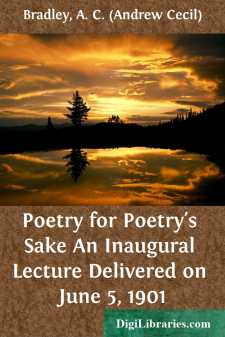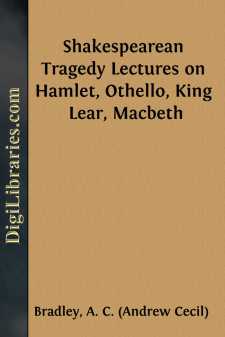Categories
- Antiques & Collectibles 13
- Architecture 36
- Art 48
- Bibles 22
- Biography & Autobiography 813
- Body, Mind & Spirit 142
- Business & Economics 28
- Children's Books 17
- Children's Fiction 14
- Computers 4
- Cooking 94
- Crafts & Hobbies 4
- Drama 346
- Education 46
- Family & Relationships 57
- Fiction 11829
- Games 19
- Gardening 17
- Health & Fitness 34
- History 1377
- House & Home 1
- Humor 147
- Juvenile Fiction 1873
- Juvenile Nonfiction 202
- Language Arts & Disciplines 88
- Law 16
- Literary Collections 686
- Literary Criticism 179
- Mathematics 13
- Medical 41
- Music 40
- Nature 179
- Non-Classifiable 1768
- Performing Arts 7
- Periodicals 1453
- Philosophy 64
- Photography 2
- Poetry 896
- Political Science 203
- Psychology 42
- Reference 154
- Religion 513
- Science 126
- Self-Help 84
- Social Science 81
- Sports & Recreation 34
- Study Aids 3
- Technology & Engineering 59
- Transportation 23
- Travel 463
- True Crime 29
Poetry for Poetry's Sake An Inaugural Lecture Delivered on June 5, 1901
Description:
Excerpt
POETRY FOR POETRY'S SAKE
One who, after twenty years, is restored to the University where he was taught and first tried to teach, and who has received at the hands of his Alma Mater an honour of which he never dreamed, is tempted to speak both of himself and of her. But I remember that you have come to listen to my thoughts about a great subject, and not to my feelings about myself; and, of Oxford, who that holds this Professorship could dare to speak, when he recalls the exquisite verse in which one of his predecessors described her beauty, and the prose in which he gently touched on her illusions and protested that they were as nothing when set against her age-long warfare with the Philistine? How, again, remembering him and others, should I venture to praise my predecessors? It would be pleasant to do so, and even pleasanter to me and you if, instead of lecturing, I quoted to you some of their best passages. But I could not do this for five years. Sooner or later, my own words would have to come, and the inevitable contrast. Not to sharpen it now, I will be silent concerning them also; and will only assure you that I do not forget them, or the greatness of the honour of succeeding them, or the responsibility which it entails.
Since I left Oxford one change has taken place in its educational system which may be thought to affect the Professorship of Poetry. A School of English Language and Literature has been founded, and has attracted a fair number of candidates. Naturally I rejoice in this change, knowing from experience the value of these studies; and knowing also from experience, if I may speak boldly, how idle is that dream which flits about in Oxford and whispers that the mastering of Old English, on the basis of Teutonic phonology, and the conquest of the worlds opened by Chaucer and Shakespeare and Swift and Burke and twenty more, is a business too slight and a discipline not severe enough for undergraduates. I should be glad to lighten their labours, and, if it should seem advisable to those who can judge, I propose to give in one of the three Terms of the year, in addition to my statutory lecture, a few others intended specially for those who are reading for the School of English. I wish I could do more, but I resigned my chair in Glasgow with a view to work of another kind, and I could not have parted from my students there, to whom I am bound by ties of the most grateful affection, in order to take up similar duties even in the University of Oxford.
The charming poem with which my predecessor opened his literary career, and his admirable contributions to poetical history and criticism, prove that it would have been easy to him to devote his lectures to the interpretation of particular poets and poems. I believe, however, that he thought it better to confine himself chiefly to questions in Poetics or Aesthetics. I can well understand his choice; but, partly because he made it, I propose to make another, and to discuss these questions, if at all, only as they are illustrated by particular writers and works....



